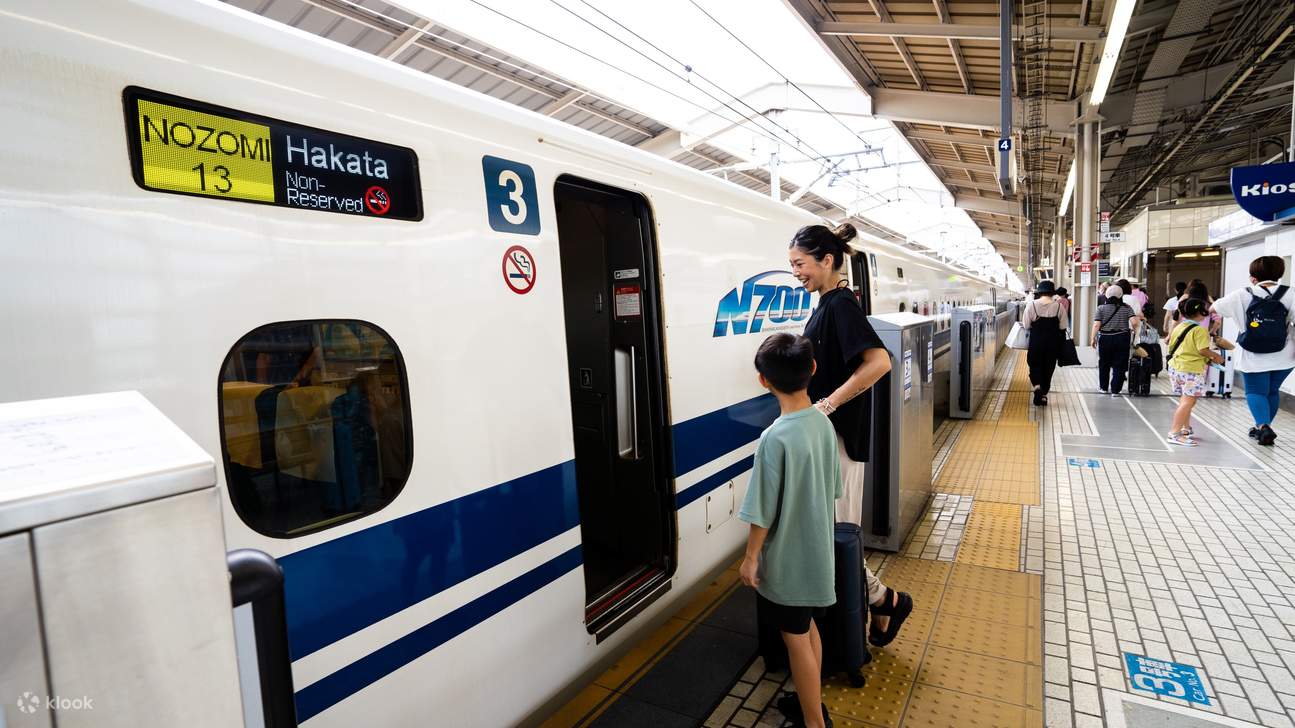The Ministry of Land, Infrastructure, Transport and Tourism Japan has announced the winners of the 22nd “Japan Railway Award”, which recognizes outstanding efforts related to railways, in conjunction with the “Railway Day” observed on October 14th every year.

250km of railways connected overcoming the pandemic
The Railway Day, which was established to commemorate the opening of Japan’s first railway between Shinbashi and Yokohama on October 14, 1872, will celebrate its 30th anniversary in 2023. The Japan Railway Award is an award system established in 2002 with the aim of deepening understanding and interest in railways and hoping for further development of railways.
Best Things To Do In Japan – Tours and Activities – KKday
The targets range from railway-related facility design and services to works of art and television programs. The award selection committee, chaired by Takaaki Koseki, a professor at the Graduate School of Engineering at the University of Tokyo, evaluates application documents, interviews and discusses them, and then selects and awards outstanding initiatives. There were 20 applications for this year’s Railway Award, and five winners were selected from among them.
The highest prize “Japan Railway Grand Prize” was given to “Shin-Yokohama Line Open! Connecting Sotetsu and Tokyu Line! – Forming a wide-area railway network with a total length of approximately 250 km.” The Japan Railway Construction, Transport and Technology Agency (JRTT), which was responsible for the construction of the Sotetsu-Tokyu Link Line opened on March 18, 2023 (Sat), and the operating entities Sotetsu Corporation and Tokyu Corporation jointly received the award.
The reason for the award was that preparations and construction work steadily progressed despite the difficulties in railway managemants caused by the COVID-19 pandemic. In addition to the three award winners, the cooperation and efforts of railway operators who provide mutual direct services were had high opinion for realizing highly convenient and integrated train operations over a wide area. Committee members praised the project, saying, “It shows us a bright future for improving the quality of life in our cities.”
(See the chart below for details such as initiatives that won the Grand Prize and Special Prizes at the 22nd Japan Railway Awards.)
![[Chart] Initiatives that won the Grand Prize and Special Prizes at the 22nd Japan Railway Awards](https://en.wtmnews.net/wp-content/uploads/sites/3/2023/10/c3ec157fcfb1e25b5ce70b424f5380fd-840x840.png)
“Special award” for Tadami Line recovered from the rain disaster
The efforts of four groups were selected for the special award by the selection committee.
The Tadami Line, which was closed due to heavy rains in Niigata and Fukushima in July 2011, has been fully reopened for the first time in about 11 years by adopting a “upper and lower separate system” in which related local governments are involved in operation. Residents along the route have come together to provide hospitality, and concrete results are appeared such as an increase in the number of passengers compared to before the disaster. The Tadami Line Utilization Promotion Council, which is actively taking on the challenge of utilizing the route, was awarded for being a role model for future disaster recovery.
Although the survival of local railways is at risk due to population decline, JR Shikoku was selected for the special award, which has demonstrated a unique survival strategy. The “Shikoku Model” has been established on the Mugi Line in Tokushima Prefecture, collaborating with bus companies that would otherwise be competing with each other to seamlessly connect transportation methods and increase convenience. Another point of evaluation is that various types of links are taking place, not only between business operators, but also through special measures under the law and cooperation from the MLIT.
Efforts to widely introduce the advanced nature and appeal of Japanese railways to the rest of the world were also selected for the special award. Tokyo Metro has launched the “Tokyo Metro Academy,” an online course that draws on its extensive experience and knowledge, targeting railway personnel from around the world. The aim is to contribute to the sustainable development of each city, and it has received high praise from the audience. They are also planning to hold a “training trip to Japan” where we will conduct face-to-face on-site inspections, and hope to receive more realistic reactions.
The award will also be presented to NHK, which produced the English program “Japan Railway Journal,” which disseminates unique railway rolling stocks and routes from around Japan. It is featured the appeal of Japan’s railways in a variety of ways, including the next-generation Shinkansen trains, the Linear Chuo Shinkansen, and the world’s first DMV operated by the Asa Seaside Railway, and can be viewed around the world through NHK WORLD-JAPAN. It is said to have contributed to deepening interest in railways among visitors to Japan and increasing their familiarity with railways.


.webp) [Japan] JR Pass for Whole Japan (7, 14, or 21 Days) | The Japan Rail Pass (“JR Pass”) allows you to enjoy unlimited travel across JR lines, including local buses, Miyajima Ferry, and more! (Ad by Klook)
[Japan] JR Pass for Whole Japan (7, 14, or 21 Days) | The Japan Rail Pass (“JR Pass”) allows you to enjoy unlimited travel across JR lines, including local buses, Miyajima Ferry, and more! (Ad by Klook) [Japan] JR East Pass (Tohoku Area) E-Ticket | Explore all the major tourist spots in northeastern Japan with easy access to transportation (Ad by KKday)
[Japan] JR East Pass (Tohoku Area) E-Ticket | Explore all the major tourist spots in northeastern Japan with easy access to transportation (Ad by KKday)



